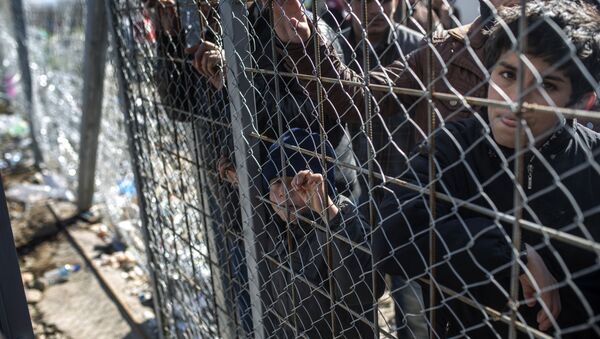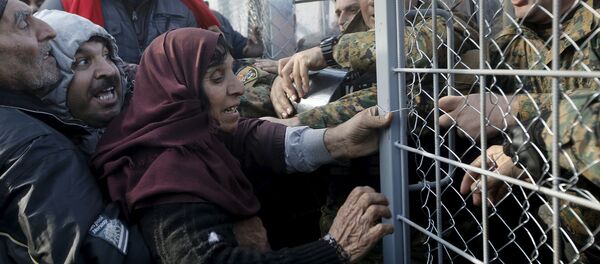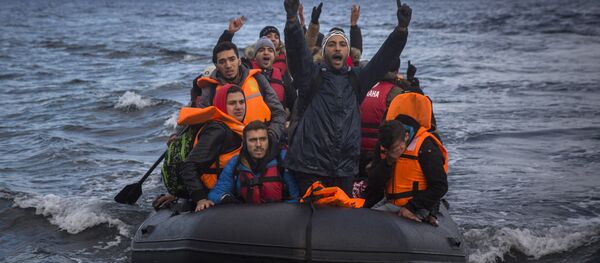As of Friday, Macedonia refused entry to every single migrant and refugee. Macedonia, Croatia, Serbia, Slovenia and Austria refused to grant passage to Afghan nationals, while limiting Syrian and Iraqi entries to 580 people a day.
Greek police transferred Afghan migrants and refugees to camps in the northern village of Diavata several days ago. Around 2,000 people are estimated to be housed at up to 600-capacity Diavata.
Many refugees choose to reach Idomeni from Athens by foot.
Greek officials capped refugee transportation from islands where migrants land from Turkey, threatening a sharp spike in numbers on Aegean islands. Only 437 migrants arrived in the continental port city of Piraeus on Saturday, in comparison to up to 4,000 daily arrivals previously.
The following day, police chiefs in Austria, Slovenia, Croatia, Serbia and Macedonia announced an agreement to jointly profile and register refugees and asylum-seekers at the border between Macedonia and Greece.
NATO's maritime operation to combat smuggling networks, meanwhile, is so far limited to informing Turkish or Greek authorities of migrant boats, as confirmed by the alliance’s leadership. There was no word of returning migrants or refugees to departure stations.
Local media outlets claimed 7,000 migrants and refugees arrived on Lesbos island on Friday, the same day NATO’s mission was launched, exceeding previous arrival numbers.
On Friday, the Greek Defense Ministry noted a 5,000 increase among migrants over the past 48 hours. Online outlets cited military sources as saying Greek officials requested tents and containers to accommodate half a million people.




